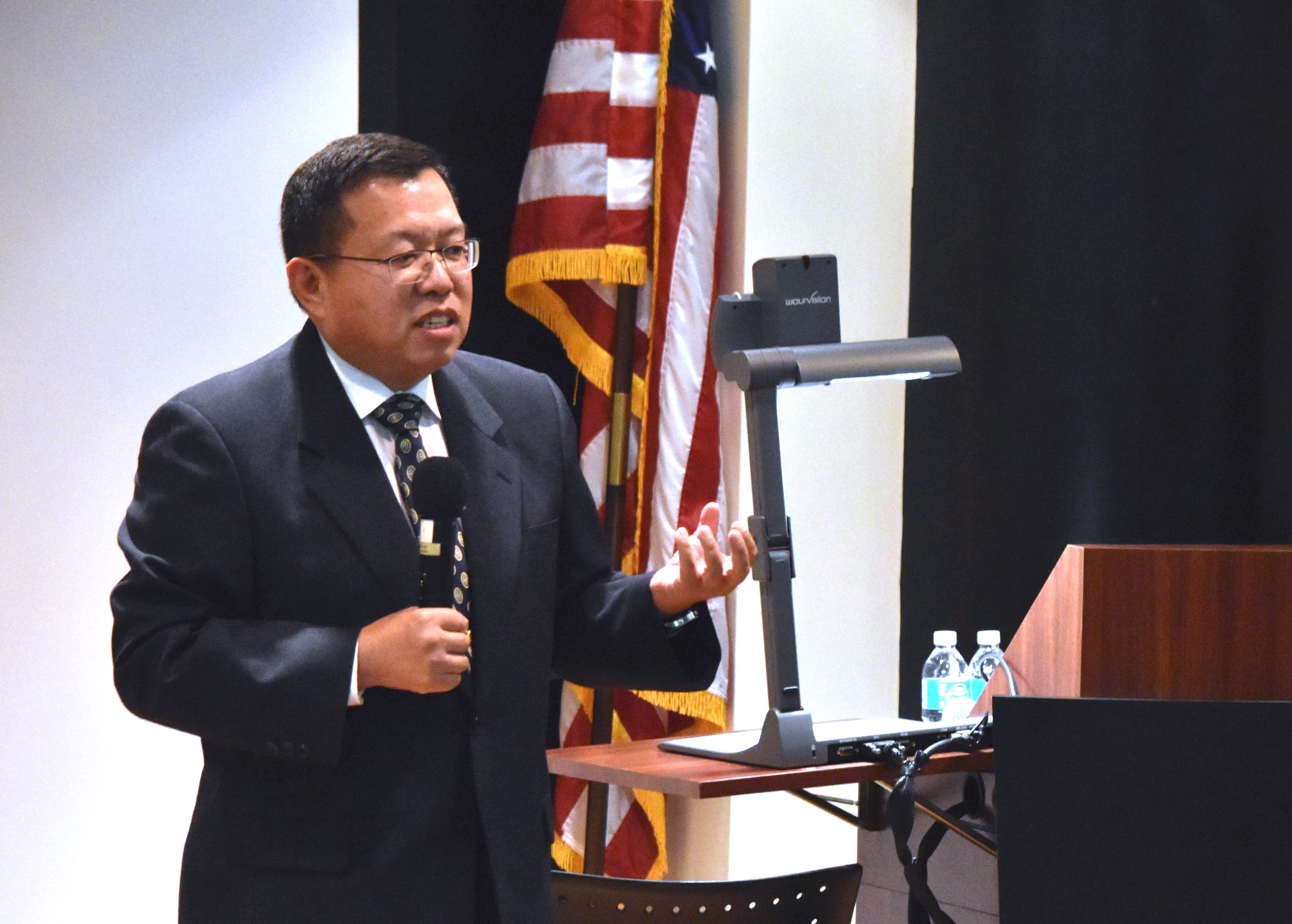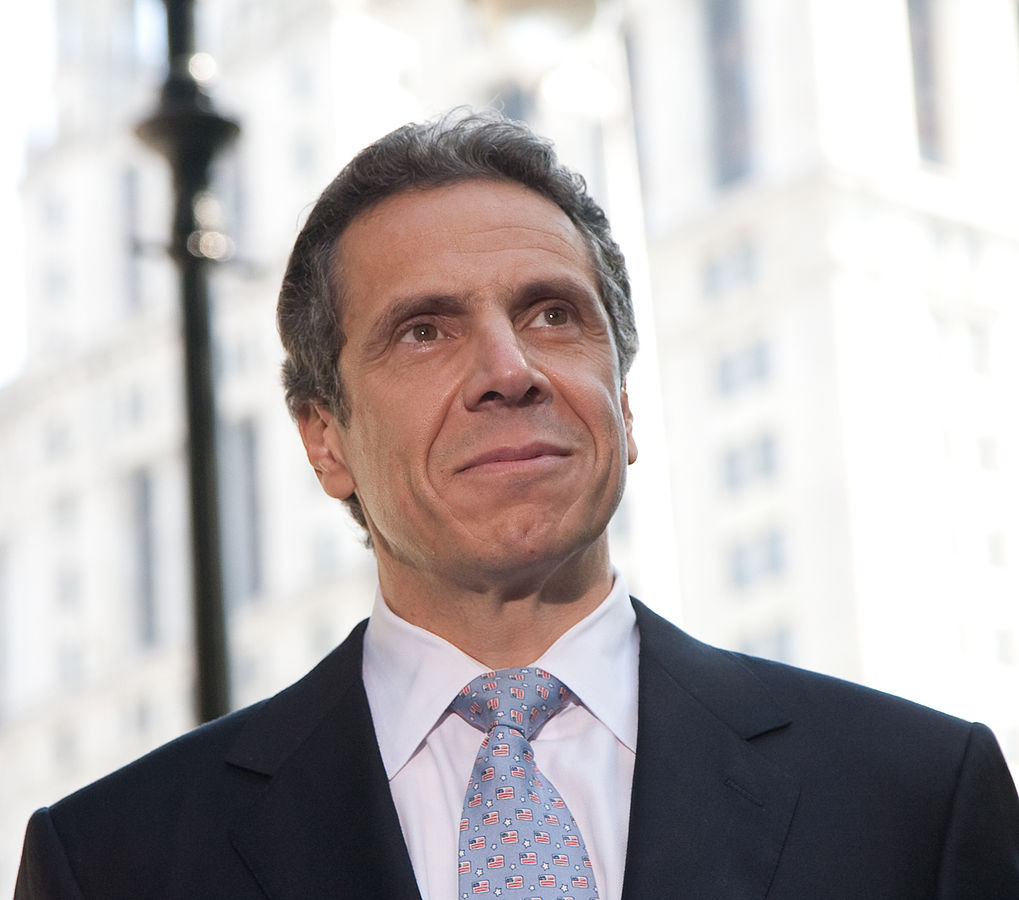In the midst of increasing tensions between the United States and North Korea, a retired South Korean general visited Kennesaw State on Sept. 28 to discuss the implications of the communist nation’s increasing hostility and nuclear capabilities.
Lt. Gen. In-Bum Chun, a highly-decorated veteran of the South Korean army with more than 39 years of military service, emphasized the role of the United States military as a stabilizing force in the region, as well as his own desire for peace.
President Donald Trump and North Korean leader Kim Jong-un have traded insults and combative rhetoric over the last month, and Trump has previously threatened North Korea with both military and nuclear force. Recently, Trump chided Secretary of State Rex Tillerson on Twitter, saying that Tillerson is “wasting his time negotiating with Little Rocket Man.”
Chun’s exclusive interview with The Sentinel has been edited for brevity.
Could you clarify what the role of the South Korean government and military is with regard to tensions in the peninsula?
We are 620,000 strong. Of that, 400,000 is ground troops, 60,000 is air force, 40,000 is navy, 30,000 is marines, and then some other parts. So I would say it plays the most critical part of a military capability on the Korean peninsula.
But why do you need a military? Most people think it’s to fight a war and win it, but the real value of a military is preventing a war. So in the prevention, or what we call “deterrence” is where the Americans come in.
The United States has about 28,000 troops on the Korean peninsula, and these soldiers provide the deterrence for peace on the peninsula against the North Koreans. Because, the North Koreans, they’re a misguided people, and the only thing that they really fear is the Americans.
That’s one aspect. Another aspect is, northeast Asia — Korea, Japan and China — have always had an interrelationship that’s very, very complicated. But with a token force of 28,000 people on the Korean peninsula and about another 35,000 on the islands of Japan, the Americans provide stability in that region. It’s like having a black and white police car in a neighborhood that’s very volatile.
Imagine Japan, China and Korea at war. Can you imagine what that would do to the world economy? You really need to think about what this very small, token force does for the entire region.
Too bad we don’t have more American troops in other areas, like in the Philippines. The United States withdrew from the Philippines and now we have the Chinese taking over those islands — another big problem.
Though the Koreans are the main military force in that area, the Americans play a very, very important role.
Do you think South Korean youth would desire to reunite with North Korea if that regime were to fall?
In the old days, everybody thought with their hearts, and if you asked that question, they would say, “Of course, at all costs.” But recently — ten, twenty years ago — when we finally saw the price list, we thought, Oh my God, not only is this going to cost us a lot of money but because of 50, 60 years of separation, North Koreans have a very different value system than we do. Values are a big problem.
So monetary as well as social costs have now become highlighted, and now the Korean people say, “Yes, we want unification, but it needs to be gradual and measured.”
Are diplomatic solutions with North Korea still viable, or does there need to be a more aggressive approach regarding the North Korean nuclear program?
We have a full set of options. On one spectrum is a military option, on the other spectrum is outright surrender to the North Koreans, and in the middle is negotiation.
I certainly do not want to surrender toward the North Koreans. I certainly hope that we will not have to go to war because there’s going to be a lot of killing involved. So it’s not because I am afraid of North Korea, but because I believe in peace, that I think we need to give negotiations a try.
But there is a caveat to this: first, the North Koreans have to show some sincerity in their actions. They have not kept their word up until now, and the result is nuclear weapons. For any meaningful negotiations, they need to realize that they can’t get away with everything, or negotiations will look like surrender.
That’s why I think sanctions are very important. A lot of people I know don’t believe in sanctions, but what I’m talking about is not five years or ten years. What I’m talking about is 50 years or 100 years of sanctions against North Korea. I don’t want their common people to starve, but they’re not going to get McDonald’s.
I think this will be a long, long process, and we need to think in these terms. Also, we need to make sure that our military is very strong so that their side of the options cannot include a military option.
What would you like the average Americans to know about tensions in Korea?
I’ve noticed that Americans who are born in the late 1940’s and early to mid-1950’s lived, and were raised in, an era of nuclear threat from the Soviets. I now realize that to this generation, the Baby Boomer generation, when they hear “North Korean nuclear weapons,” they’re thinking of a Soviet kind of threat.
Well, the North Koreans, they’re not going to fire 3,000 missiles. The Soviets had 34,000 warheads, and they’re not going to fire 34,000. I’m not belittling the threat, but it’s not as if it’s going to be a Soviet threat, and it’s not as if the North Koreans are going to blackmail the United States.
I think this weapon is for regime survival. They’re not going to use it first — it’s more of a response to some kind of perceived threat.
I think the United States needs to cooperate with Korea and Japan — hopefully with the Chinese and the Russians as well — and think of it in long terms. Kim Jong-un, he’s going to be the president of that country for the rest of his life, and he’s thinking, “Trump, he’s going to be president for the next four to eight years. Or even 12 years.”
Let him understand that whoever becomes president of the United States, these sanctions will get worse, but they aren’t going to get better. If he is reasonable enough, and I still hope for that, he will say, “Okay, let’s make a deal.”
All of what I’m saying is coming from the fact that I really believe that our system is better. He has a communist dictatorship where human rights is a dirty word, where no one has freedom. Everybody is monitored and spied upon. That’s how he’s controlling it.
In our society, I could do whatever I want, as long as I’m not hurting anybody else. I can say whatever I want, as long as it’s the truth. I believe that my system is far superior to his, and to a system like his, he must feel very, very threatened by our system and our way of life.
People say time is not on our side, and for denuclearization, time is not on our side. But for the overall victory — and you have to define victory, where good prevails over evil — I think we will win. We must win.
What would that victory look like ultimately?
People going about their daily life. What do people really want? To rule the world? No! For boys, they want to meet a nice girl and get a nice job where he doesn’t have to work 24 hours, but just enough to bring in a good salary. To make his wife and his kids happy, maybe take his kids to baseball games and walk his dog. Maybe get a boat.
That’s what people want. I want the North Koreans to have the same thing. Right now they have to worry about eating, and the sad thing is that their leader intentionally leaves it that way because he knows that if you’re worried about lunch, you’re not going to be worried about freedom of speech. To him, it’s not in his benefit to make their lives comfortable.
You contributed to the first “fair and free” elections in Iraq. Is there a way we could do that with North Korea? Could we remove Kim Jong-un?
If we remove somebody, we’d better have a replacement. Look at Libya. Do you think Libya has become better, with Gaddafi? ISIS is a direct result of Libya.
Getting rid of somebody is not a very good option because we need to keep our focus on the goal. We need stability, and with that stability, peace and economic development.
It’s not because I like Kim Jong-un or I support his ideas, it’s only what’s in the best interest of the overall human population.


